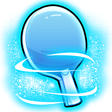Feeling Overwhelmed When Learning
Training
Raymond Lai Asked 11 years ago
Hi Alois,
I am an absolute beginner. A problem I have with learning table tennis is that there many instructions for me to do simultaneously and I feel overwhelmed. My mind can only focus on one instruction at a time.
For example, when I start to learn to hit the ball on the table tennis table, I am taught to keep my feet apart, bend my knees, hold the bat correctly, watch the ball, decide where I want to hit the ball, make sure I hit the middle of the bat, make sure my bat is facing where I want to hit the ball and don't lean back when I hit the ball (which is what I do). I feel overwhelmed and I don't know what to do.
Is it better to focus on just one aspect, such as keeping my feet apart and making sure that I master keeping my feet apart and then focus on the next skill or is it possible to focus on more than one skill at a time?
Thank you for your time and help.
 Alois Rosario Answered 11 years ago
Alois Rosario Answered 11 years ago
Hi Raymond,
The game can look quite confusing when you are first learning.
It is important to focus on one thing at a time to improve. During a session you may get a feel for one thing and then as you start to focus on the next, you may go backwards with the first aspect. For example you may be focusing on the arm action of the forehand topspin. You may get this movement right and then focus on the leg position. As you start to think about the leg position you may forget about the stroke. Then you need to focus on the legs for a while and forget about the arm action. As you get the legs right you may try to combine the two.
At any one instant you are thinking about one skill however in the session you may start to get the two aspects correct.
Don't overdo the number of things you focus on in a session. If you can get those two things right you have done really well. The next session you may have to start all over again, but may get it a little quicker.
The game is interesting because it is made up of so many parts. However, always remember to keep it simple.
Recommended Video
Thoughts on this question
Become a free member to post a comment about this question.
Harry Fay Posted 11 years ago
Time is key, I had verylittle training yet I made it to the schools final in a very large area of Ireland ,if you justkeep enjoying table tennis you'll be good
Douglas Hill Posted 11 years ago
Sometimes club players give beginners too many suggestions to deal with at once. A good coach helps you focus your attention, is able to hit balls to you very consistently so you don't have to deal with so much variation in the beginning, and gives you time to try something for several repetitions before pointing out a new thing. I hope you find someone with these qualities. Professional coaches really do earn their money.
Thanks Douglas, these are good points.
mat huang Posted 11 years ago
Most coaches teach you the basics- bend your knees, feet aprt etc. Those you have to overcome. BUt when you found yourslef overwhelmed with too much, just try to do one at a time and over while you 'll get into the habit of bending knees and feet apart. Just as Harry said, Time is the key
Arne Anderson Posted 11 years ago
Very good advice. I have been working on my forehand drive, after 64 years of doing it wrong (I'm 82). In my case, the stroke was terrible until I spread my feet wide apart and went into a bit of a crouch. Yesterday, with the wide stance, I could do no better than three good drives in a row. This morning, I hit 21!
After my back and knees got tired from the crouch, I went back to a more upright position--and the stroke still worked!
I really appreciate your Forum and the 6 DVDs you sent me. Thanks again
eduardo espinosa Posted 11 years ago
Hello, Mr.Lai. Just wanted to add "good practice makes perfect". Also, by playing this game you are going to acquire a degree of focusing that nothing else that I know will give you.
Raymond Lai Posted 11 years ago
Hi Alois and Jeff,
I would like to say a very big thank you for taking the time to create the video response to my question. Your table tennis wisdom has helped clear a psychological obstacle that was blocking how I go about learning skills in both table tennis and in other areas of my life. You are both fabulous ambassadors for the game of table tennis and your generosity is most appreciated!
DHS Lover Posted 11 years ago
John Kellett Posted 11 years ago
I am obviously going against the flow here but science tells us that better results are achieved by focusing on the target ie the ball's flight path and where it lands (an external focus)rather than what your body needs to do (an internal focus). Research tells us that an external focus results in better skill acquisition. Bear in mind, also, that the learning may not be immediately obvious since motor learning becomes "consolidated" by sleep the following nights. Much research can be found on Google with "skill acquisition" though little of it is directed at table tennis in particular but the principles usually apply beyond the particular task employed in the research.
Ernesto.
Martin Coronel Posted 11 years ago
Nosebleed too much genius,can't understand.What does that mean???
too much genius,can't understand.What does that mean???